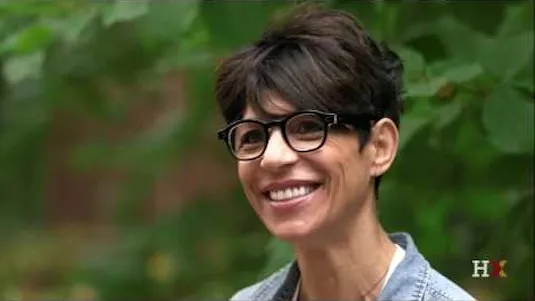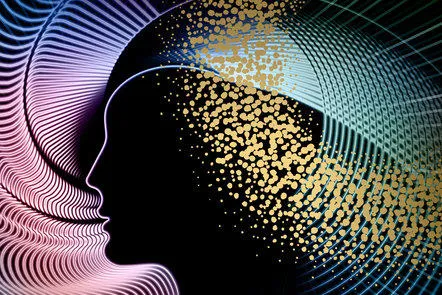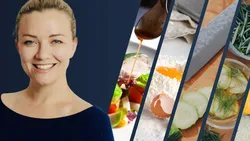
Science & Cooking: From Haute Cuisine to Soft Matter Science (chemistry) 
This course combines the expertise of chefs and Harvard scientists to explore the science behind haute cuisine. Chefs demonstrate their culinary creations in their own restaurants, while the Harvard team explains the chemistry behind the recipes. Students gain an understanding of the science of cooking and the art of creating delicious dishes. ▼
ADVERTISEMENT
Course Feature
![]() Cost:
Cost:
Free
![]() Provider:
Provider:
Edx
![]() Certificate:
Certificate:
Paid Certification
![]() Language:
Language:
English
![]() Start Date:
Start Date:
29th Mar, 2023
Course Overview
❗The content presented here is sourced directly from Edx platform. For comprehensive course details, including enrollment information, simply click on the 'Go to class' link on our website.
Updated in [March 06th, 2023]
This course, Science & Cooking: From Haute Cuisine to Soft Matter Science, provides an exciting opportunity to explore the science behind some of the world's most famous culinary creations. Chefs will reveal the secrets behind their recipes, and the Harvard team will explain the science behind them. Topics covered include how molecules influence flavor, the role of heat in cooking, and diffusion, revealed by the phenomenon of spherification. Participants will also have the chance to become experimental scientists in their own kitchen, learning to think like both a cook and a scientist. The lab component of the course is unique, as it allows participants to eat their experiments.
[Applications]
Those who have completed this course can apply their newfound knowledge to their own cooking. They can use the scientific principles they have learned to create new recipes and explore the molecular basis of flavor. They can also use the techniques they have learned to experiment with different cooking methods and ingredients. Finally, they can use the skills they have acquired to become more mindful and precise in their cooking, allowing them to create delicious dishes with greater accuracy.
[Career Paths]
1. Culinary Scientist: Culinary scientists combine their knowledge of food science and cooking to develop new recipes and products. They use their knowledge of chemistry, biology, and nutrition to create new flavors and textures. They also work to improve existing recipes and products. As the demand for healthier and more sustainable food products increases, the need for culinary scientists is expected to grow.
2. Food Technologist: Food technologists use their knowledge of food science to develop new products and processes. They work with food manufacturers to develop new products, improve existing products, and ensure that food products meet safety and quality standards. They also work to improve the efficiency of food production processes. As the demand for healthier and more sustainable food products increases, the need for food technologists is expected to grow.
3. Food Safety Inspector: Food safety inspectors are responsible for ensuring that food products meet safety and quality standards. They inspect food production facilities to ensure that they are following safety protocols and that the food products they produce are safe for consumption. As the demand for healthier and more sustainable food products increases, the need for food safety inspectors is expected to grow.
4. Food Scientist: Food scientists use their knowledge of food science to develop new products and processes. They work with food manufacturers to develop new products, improve existing products, and ensure that food products meet safety and quality standards. They also work to improve the efficiency of food production processes. As the demand for healthier and more sustainable food products increases, the need for food scientists is expected to grow.
[Education Paths]
1. Food Science Degree: A Food Science degree is a great way to learn about the science behind food production, preparation, and preservation. This degree focuses on the physical, chemical, and biological properties of food, and how they interact with each other. It also covers topics such as food safety, nutrition, and food engineering. Developing trends in this field include the use of technology to improve food production and safety, as well as the use of sustainable practices to reduce food waste.
2. Culinary Arts Degree: A Culinary Arts degree is a great way to learn about the art of cooking and the science behind it. This degree focuses on the techniques and methods used in the kitchen, as well as the science behind food preparation and cooking. Developing trends in this field include the use of modern technology to improve the quality of food, as well as the use of sustainable practices to reduce food waste.
3. Food Chemistry Degree: A Food Chemistry degree is a great way to learn about the chemical properties of food and how they interact with each other. This degree focuses on the physical and chemical properties of food, as well as the science behind food production and preservation. Developing trends in this field include the use of modern technology to improve food production and safety, as well as the use of sustainable practices to reduce food waste.
4. Food Technology Degree: A Food Technology degree is a great way to learn about the science and technology behind food production, preparation, and preservation. This degree focuses on the physical, chemical, and biological properties of food, and how they interact with each other. It also covers topics such as food safety, nutrition, and food engineering. Developing trends in this field include the use of modern technology to improve food production and safety, as well as the use of sustainable practices to reduce food waste.
Course Provider

Provider Edx's Stats at AZClass
Discussion and Reviews
0.0 (Based on 0 reviews)
Explore Similar Online Courses

CSS Flexbox Tutorial

Psychology Sensation and Perception Online Course - FutureLearn

Python for Informatics: Exploring Information

Social Network Analysis

Introduction to Systematic Review and Meta-Analysis

The Analytics Edge

DCO042 - Python For Informatics

Causal Diagrams: Draw Your Assumptions Before Your Conclusions

Whole genome sequencing of bacterial genomes - tools and applications

Culinary Education 101 - The Cooking Like a Chef Crash Course

Madhur Jaffrey Teaches Indian Cooking

Dominique Crenn Teaches Modern Vegetarian Cooking
 Related Categories
Related Categories
 Popular Providers
Popular Providers
Quiz
 Submitted Sucessfully
Submitted Sucessfully
1. What is the main focus of the course?
2. What is the unique component of the course?
3. Which culinary technique was pioneered by Ferran Adrià?
4. What is spherification?
Correct Answer: It is a culinary technique pioneered by Ferran Adrià.


Start your review of Science & Cooking: From Haute Cuisine to Soft Matter Science (chemistry)